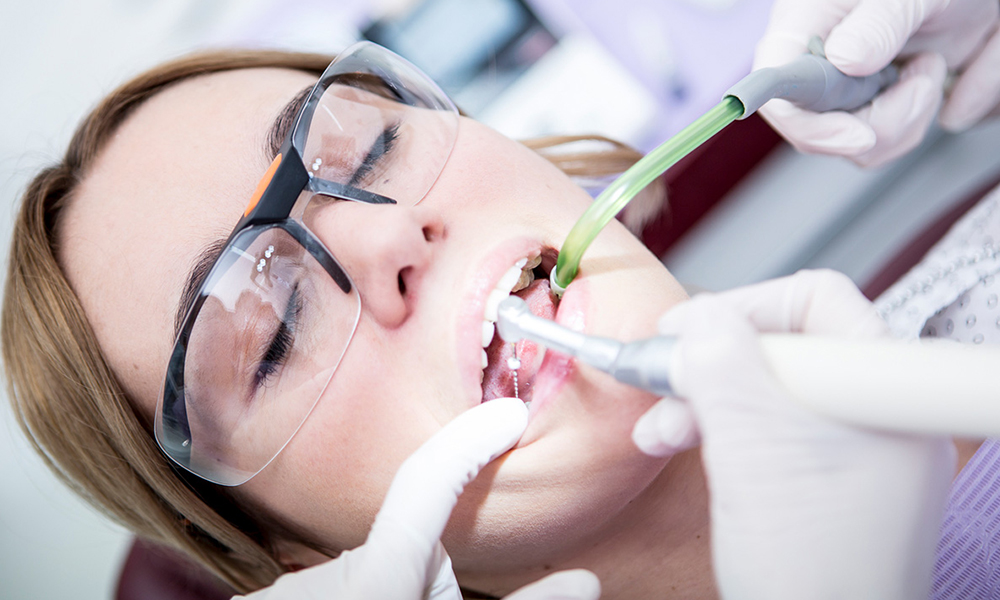Root canal therapy is a common dental procedure designed to save a damaged or infected tooth. In fact, understanding the signs and symptoms that may indicate the need for a root canal can help you seek timely treatment and avoid more severe dental issues. A dentist in Buffalo Grove, IL, will be able to diagnose your condition and determine whether root canal therapy is necessary for you.
In this blog, we’ll explore five major signs and symptoms that might suggest you need root canal therapy.
1. An Abscess (or Pimple) on the Gums
One of the most telling signs of an infection severe enough to require a root canal is the presence of an abscess on the gums. This small, pimple-like bump usually appears near the affected tooth and is a clear indication of an underlying issue. The abscess is essentially a pocket of pus caused by bacterial infection, which can lead to significant discomfort and should not be ignored.
Dental abscesses typically result from untreated cavities, gum disease, or trauma to the tooth. So, if you notice such a bump on your gums, it’s essential to consult your dentist promptly. Delaying treatment can worsen the infection, leading to more extensive damage to your tooth and surrounding tissues.
2. Sensitivity to Hot and Cold
Another common indicator that you might need a root canal is increased sensitivity to hot and cold temperatures. In fact, you may experience a sharp pain when consuming hot beverages or ice-cold foods, which lingers even after you’ve finished eating or drinking. This sensitivity usually signals that the tooth’s nerve and blood vessels are compromised.
While mild sensitivity can be a normal reaction, persistent and severe sensitivity often points to deeper issues within the tooth’s pulp. So, if you find that your teeth are consistently sensitive to temperature changes, it’s crucial to visit your dentist for an evaluation.
3. Severe Toothache
Severe toothache is a symptom that should never be ignored. If you experience intense, throbbing pain in your tooth, then it could be a sign that the pulp inside is infected or inflamed. The pain might be constant, or it could come and go, but it typically worsens when you lie down or apply pressure to the affected tooth.
Toothache can stem from various dental problems, but when it becomes severe, it often indicates that the inner pulp is damaged and needs immediate attention. Your dentist can determine whether a root canal is necessary to alleviate the pain and save the tooth.
4. Sometimes No Symptoms Are Present

Interestingly, there are cases where no noticeable symptoms are present, yet a root canal is needed. This scenario usually occurs when an infection or decay has reached an advanced stage without causing immediate discomfort. Regular dental check-ups are crucial in such instances, as they can help detect hidden issues before they escalate.
During a routine exam, your dentist may identify signs of infection or damage through X-rays or other diagnostic tools. So, even if you’re not experiencing any pain or discomfort, it’s possible that a root canal might be required to prevent future complications.
5. Swelling and/or Tenderness
Swelling and tenderness around a specific tooth or in the nearby gums can also signal the need for a root canal. This swelling may be accompanied by a feeling of tenderness, making it uncomfortable to chew or touch the affected area. The swelling also results from an accumulation of bacteria and infected tissue inside the tooth, leading to inflammation.
In some cases, the swelling may extend to the face or neck, indicating a serious infection that requires prompt treatment. So, if you notice any unusual swelling or tenderness near your teeth, seeking dental care immediately is vital to address the issue and prevent further spread of the infection.
Conclusion
Root canal therapy is a critical dental procedure that can save a damaged or infected tooth from extraction. Knowing the signs and symptoms that may necessitate a root canal can help you take timely action and maintain your oral health. In addition, regular dental check-ups and paying attention to any changes in your oral health are key to preventing serious dental problems.
So, don’t ignore any signs—early diagnosis and treatment can make all the difference in preserving your smile and well-being.

